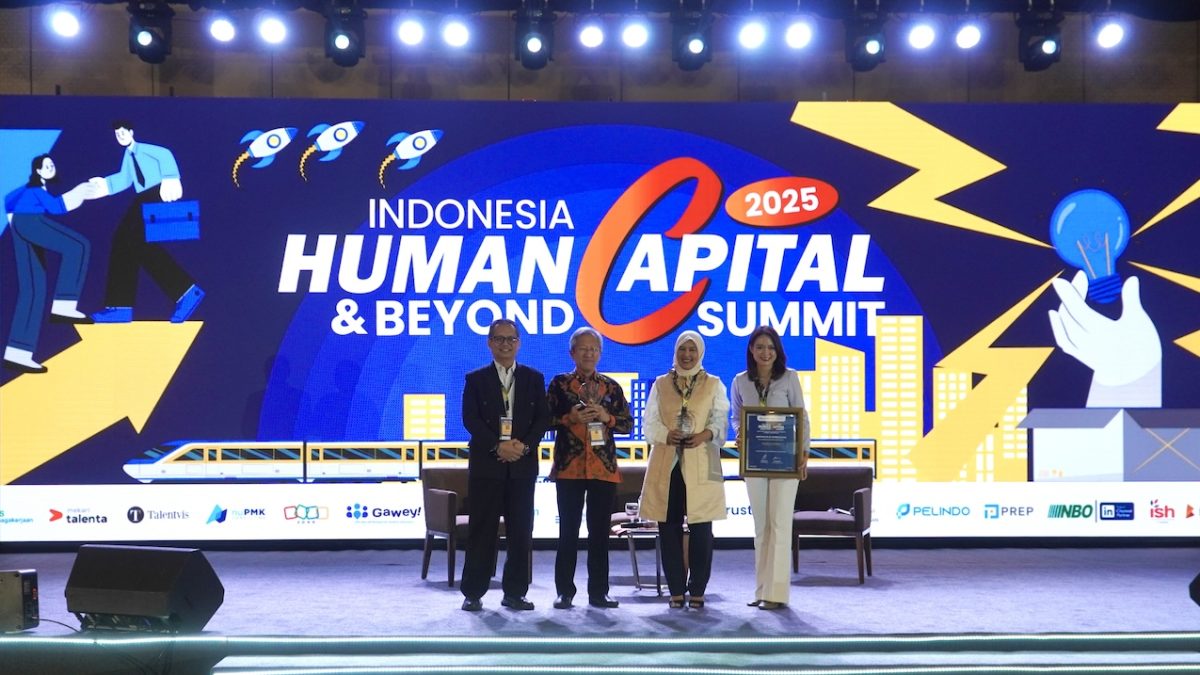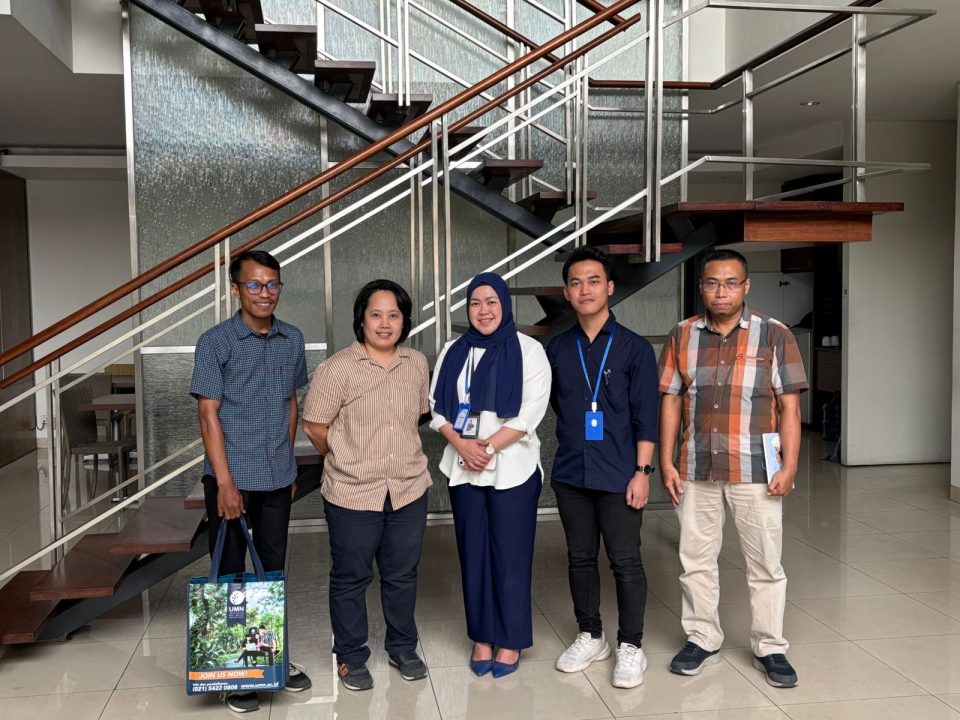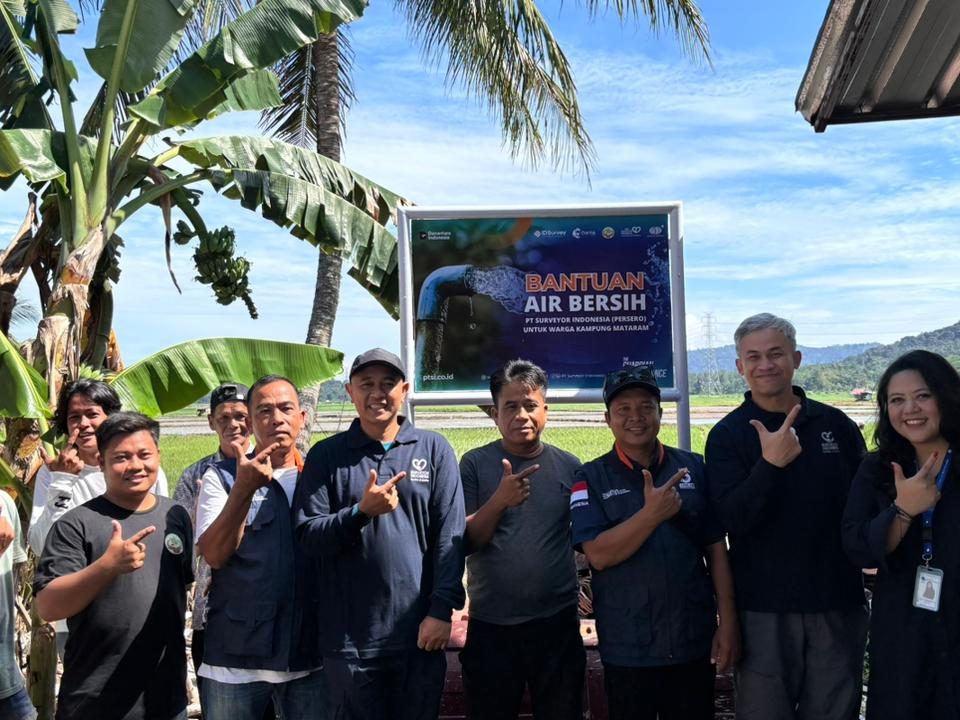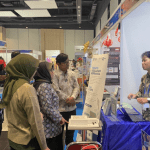
UMN Showcases Innovative Products at IPXpose Indonesia 2025
September 12, 2025
UMN Students Drive Change in AI Policy, Contributing Key Insights to Indonesia’s “Future Feature” Report
September 24, 2025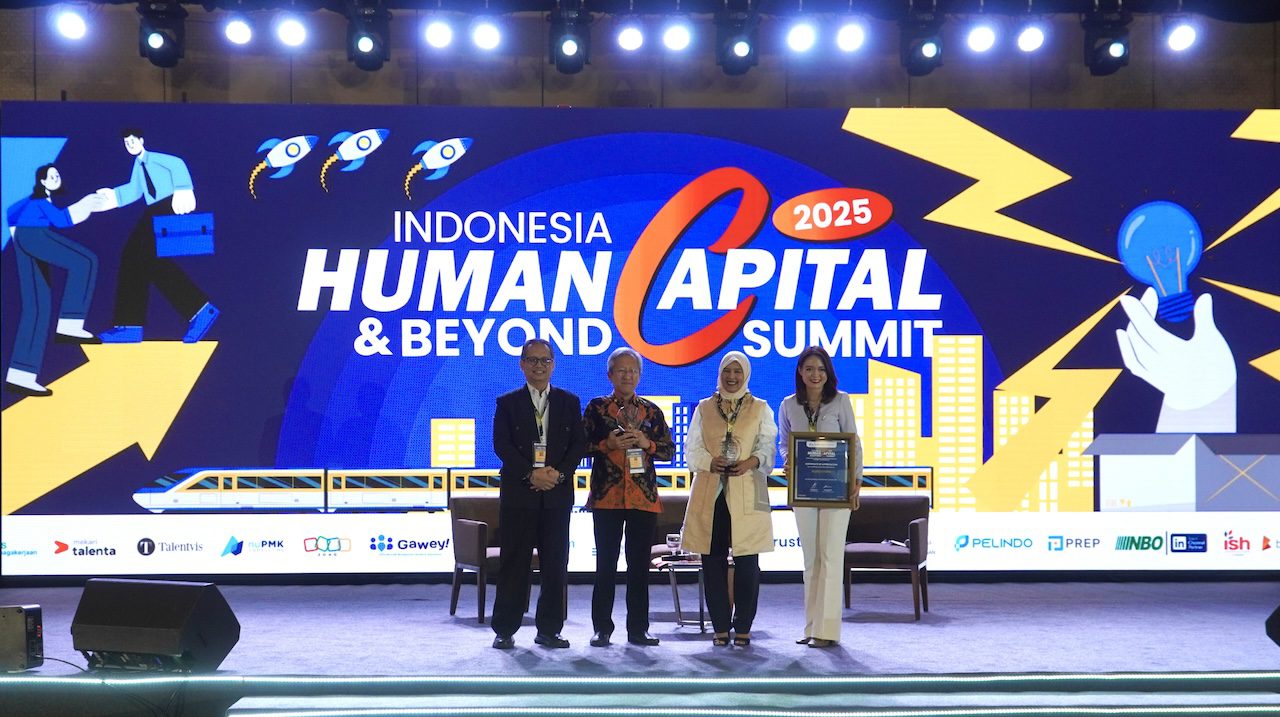
Presentation of plaques and group photo with speakers. (Doc. UMN)
Tangerang – UMN Rector Ir. Andrey Andoko was one of the speakers at the Indonesia Human Capital & Beyond (IHCB) Summit 2025 mega session held at ICE BSD on Tuesday (02/08/2025). The theme was “Strategies for Indonesia’s Economic Transformation.”
The IHCB Summit 2025 annual event focuses on developing Indonesia’s human resources (HR). It invites speakers to discuss various topics. Andrey had the opportunity to be a speaker and addressed the topic “Transforming Corporate Strategy for the Green and Digital Economy.” Andrey shared how UMN approaches digital transformation and implements sustainability from an educational perspective.
“Currently, the focus is on technological developments, with many corporations struggling to face digital transformation. This is why we need comprehensive solutions for business and sustainable systems, which must start with human resources. We now see Artificial Intelligence (AI), which is a digital disruption. We cannot avoid it, but we can adopt it into learning,” Andrey explained.
Andrey also explained how to adopt digital transformation in the world of education, namely by not rejecting existing technological developments. Andrey also asked the academic community at UMN to adopt AI into learning and leave behind old ways of thinking and viewing things.
“Currently, there are many sources of knowledge, coupled with the existence of generative AI, which makes it easier to access knowledge. That is why UMN does not prohibit the use of AI; instead, we require the use of AI. We exploit AI until we know its limits, and once we know them, we can develop things that AI cannot do. That is why human skills still exist and we can surpass AI,” Andrey explained.
Andrey also emphasized that by exploring AI and understanding its limitations, we can further enhance the skills that will be needed in the future. For Andrey, UMN graduates will possess AI and human skills that are more advanced than AI technology.
“In addition to observing the progress of AI technology, UMN also pays attention to the equally important issue of sustainability. Since the UMN campus was first built, sustainability has been our priority. However, currently, the issue of sustainability has become a competition that is emphasized to students, as well as adopting sustainability in learning and activities at UMN. This is so that students can learn about sustainability issues not only in the classroom but also outside the classroom,” Andrey added.
Andrey also shared how learning is carried out at UMN. He explained that at UMN, lecturers do not just explain. At UMN, students also learn a lot in groups, through project-based learning, and case studies. This is to hone critical and analytical thinking, so that many soft skills can be developed.
“Besides learning on campus, UMN also requires students to do internships. Internships are required to prepare students for the world of work, so that students have real experience and can see the development of the industry firsthand,” Andrey said.
Andrey also said that UMN collaborates with industry to prepare good graduates. Andrey explained various ongoing UMN initiatives carried out in collaboration with industry, such as curriculum matching, joint sustainability projects, research collaboration, and various other initiatives.
“Industrial development is indeed faster than education. UMN continues to develop strategies to keep up with industrial developments and understand what is needed in the industry, so that it can fill the gap and meet industrial needs with human skills and knowledge that are in line with the industry,” Andrey said.
By Rachel Tiffany | UMN News Service
English translation by Levina Chrestella Theodora
Kuliah di Jakarta untuk jurusan program studi Informatika| Sistem Informasi | Teknik Komputer | Teknik Elektro | Teknik Fisika | Akuntansi | Manajemen| Komunikasi Strategis | Jurnalistik | Desain Komunikasi Visual | Film dan Animasi | Arsitektur | D3 Perhotelan , di Universitas Multimedia Nusantara.

